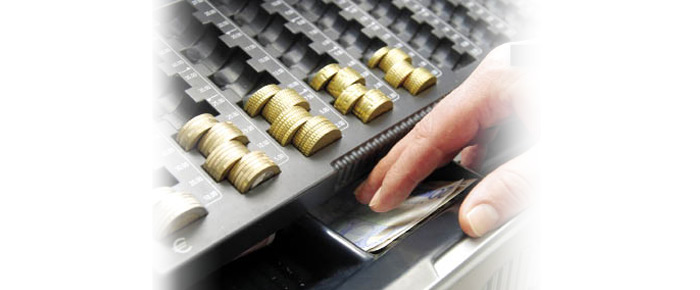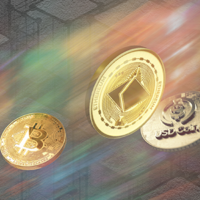
A centuries old system of informal alternative banking, customary in many parts of the world, is beginning to emerge as a burgeoning cottage industry in the United States. As is the case with many customs, hawala is the by-product of specific ethnic immigration, generally concentrated in densely populated urban neighborhoods, and in some cases, larger geographical spheres.
The Financial Crimes Enforcement Network (FinCEN) advisory 33, issued in March of 2003, references hawala as one of several Informal Value Transfer Systems (IVTS) operating throughout the world. The IVTS names generally correspond with the ethnicity most closely associated with that particular IVTS. In India, for example, hundi is the term normally used. Hawala is commonplace to the Middle East, North and Central Africa, as well as South and Southeast Asia. In the United States, immigration patterns during the past 30 years from the Middle East have made the term hawala much more prevalent than hundi, with new arrivals from India more in step with western culture upon their arrival.
Hawala is part of most initial anti-money laundering (AML) training, but usually only touched on in a cursory manner. Even those experienced with Bank Secrecy Act (BSA) compliance and AML investigations have a limited understanding of it. In the United States, and to those of us involved with BSA and AML, the word hawala is a connotation for illegal activity possibly related to terrorist financing. An IVTS, however, is not illegal just because it is an IVTS. What is a violation of the law is if the IVTS is operating as an unlicensed, unregulated money services business — which is generally the case. FinCEN advisory 2010-A011, issued on September 1, 2010, reminds financial institutions of this as follows:
The fundamental tenet
of hawala is trust
As a type of Money Services Business (MSB) and specifically, as a type of money transmitter, IVTS may legally operate in the United States, so long as they abide by applicable state and federal laws. This includes registering with FinCEN and complying with anti-money laundering and counter-terrorist financing provisions of the Bank Secrecy Act (BSA) applicable to all money transmitters and to certain other MSBs.
Section 1960 of Title 18, and section 5330 of Title 31 of the United States Code, prescribes the civil and criminal penalties for failing to register with FinCEN and failure to comply with recordkeeping, reporting and AML requirements.
The Concept
Hawala is a rudimentary concept to understand. It is the transfer of funds between two distant geographical regions (generally two countries) with no immediate physical transfer of the funds. If you draw two circles about an inch apart you have the quintessential diagram of a hawala transaction. As an example, client A brings $2,500 to a hawala broker (hawaladar), who in turn contacts his associate hawaladar by phone, fax or email, with instructions to deliver the same amount to the designated beneficiary of client A. Codes and passwords are used in many instances to describe the terms of the transaction and to ensure that the funds end up in the hands of the intended recipient.
In Hawala we Trust
The fundamental tenet of hawala is trust; trust between the client and broker and trust between broker and broker. Trust additionally extends, to a varying degree, to individuals known to both parties who make an introduction, in effect, vouching for the character of the client or broker. Trust drives the process since there is rarely any physical proof to substantiate a transaction has taken place. The broker delivering the funds must also have the capital available to advance those funds because settlement comes after the fact and could be one-sided and/or delayed. Most hawaladars have long-standing business relationships with each other, are related, or both. Even in lieu of a relationship, reputation as a hawaladar allows any broker to seek out a correspondent and consummate a transaction with relative peace of mind.
The Hawaladar
Very few hawaladars operate solely as hawaladars for their livelihood. Most are in a legitimate business with hawala being an additional service to earn extra income and retain customers. The businesses can range from a small neighborhood convenience store to a major importer/exporter, with the smaller local retail merchant being the more typical hawala originator. For settlement purposes, those businesses involved in international activity are more conducive for hawala since overseas transactions would not be out of the ordinary.
Some businesses do go as far as advertising hawala availability via local newspapers, bulletins and the Internet in their native tongue. The advertising is generally in code, often referencing travel related services and currency exchange deals. Many hawaladars are simply known by word of mouth. Someone in the neighborhood either knows a broker or knows someone who knows one.
While some hawaladars do register with FinCEN and matriculate into a licensed money services business, many do not. Many may be ignorantly innocent of the law, even though we all know that ignorance of the law is no excuse. A hawaladar may also be nothing more than a person with a day job, who just happens to have some overseas connections, performing hawala as a favor to friends and relatives while earning a few extra dollars on the side.
The Clients and the Reasons
Just as the hawaladar is generally a person of the neighborhood, so are the clients. People engage in hawala for a multitude of reasons. New immigrants are initially unfamiliar with their new country and retain old world traditions until they can more fully assimilate. Many cannot obtain bank accounts right away. Relatives and business associates in their nation of origin may not have access to banking services for a variety of reasons. They may live in a remote area of the country making hawala the only plausible delivery channel. Their country may be ravaged by civil strife, war and/or political instability, rendering the banking system and delivery of their funds risky. Many flat out view their governments as corrupt, fearing their money will be stolen. Still, others either do not trust banks or hate banks altogether (feelings that are not limited to just new immigrants in the United States). To many, hawala has always been a way of life, leaving them with no inclination or reason to change.
Hawala also thrives and flourishes because of the large number of illegal aliens and those on expired visas roaming the United States. A bank account is not an option for most so hawala becomes their only alternative. Someone who does have a bank account, but also an expired visa, certainly does not wish to call attention to themselves by initiating a wire transfer, for example, afraid that bank officials may stumble across the visa expiration, not only closing the account but alerting authorities.
The Benefits
Several of the benefits of hawala are that funds are usually delivered immediately, which includes the flexibility of exchanges being consummated during non-bank hours. Depending on the amount, broker commissions are comparable or may be even lower than a bank. In some cases, as mentioned above, the biggest benefit of hawala is the safety of funds being transferred to an environment marred by lawlessness and civil unrest.
Circumvention of currency exchange rates can be another benefit of hawala for both broker and client. In hawala, funds given to a broker in U.S. dollars reappear in the currency of the receiving country. Many countries that are prime destinations for hawala transfers have deleterious government imposed exchange rates, designed to control the influx of foreign currency. This distorted exchange rate allows a hawaladar to split the distorted portion with their client. The client gets more for their U.S. dollar while the hawaladar earns the difference of the split. It is up to the hawaladar what percentage of the split he wants to market. It also allows him to possibly keep commission costs low, or not charge at all to sweeten the deal. The free market system even applies to illegal activities. Somewhat amusingly, a price war can develop among hawaladars with the client becoming a hawala shopper. The benefit can entice even those individuals firmly entrenched in American culture, those who normally would not consider turning to hawala.
Hawala in Black and White
Hawala is quite often referred to as either being black or white. White hawala occurs when the transaction is with legitimate funds and is seemingly harmless (someone sending money to a relative). Black hawala deals in transactions where the funds are illegitimate (derived from major criminal activity such as drug or human trafficking) or used for criminal purposes (money laundering or terrorist financing).
The Fallacy of White Hawala
While white hawala is synonymous with transactions that are non-violent, or not connected to major criminal activity, taking the position that it is a victimless crime is naive at best. It is paramount to remember not to marginalize the fact that most white hawala transactions may have an element of tax evasion, whether it be the client transferring unreported earnings, the hawaladar failing to report his/her fees, or in many cases — both. It allows those here illegally, those here with the express purpose of making money to remit back home, a conduit to remain invisible. Nor should it be any more comforting when black hawala transactions are the result of criminal activity viewed as acceptable vice by an apathetic public, such as gambling or pornography.
Settlement
Eventually, a hawala transaction must be settled between the hawaladars. The possibilities are multiple and imaginative. Hawala settlements can best be summed up by the slogan made famous by Outback Steakhouse — "No rules, just right." Its like being in a maze with someone sealing the only opening after you enter. In its purest form, two hawala brokers may not settle for extended periods of time — possibly never. In our previous example, client A has given his hawaladar (hawaladar A) $2,500 for delivery overseas. Hawaladar A now has $2,500 in his possession while hawaladar B is owed the same amount (fees for both excluded). One week later hawaladar B brokers $3,000 to the United States. Hawaladar A takes the $2,500, possibly sitting right in a safe at his business, adds $500, and delivers it to the designated beneficiary. Hawaladar A is now owed $500, with hawaladar B in possession of $3,000, which represents reimbursement of his original advance and the $500 owed hawaladar A. This process can literally go on forever. In the United States, since more money is outgoing than incoming, eventually one broker may end up with a substantial balance due, a balance too difficult to sustain, thus forcing a settlement.
Settlement can also run the gamut from cash being deposited into the hawaladar's traditional bank account and being transferred abroad, to goods being shipped to the corresponding broker in lieu of payment. A hawaladar with a legitimate business, that has international activity, can simply commingle hawala funds with his normal receipts. A cash intensive business gives even greater obfuscation. It also provides the hawaladar with no reason to try and avoid currency transaction reporting (CTR) requirements making hawala extremely difficult to suspect with just a small percentage of the business.
Brokers can further disguise their activity by utilizing the client's cash for business expenses, substituting previously deposited business receipts for settlement. In pure hawala, as described above, multiple
transactions over long periods of time can be settled by one simple wire. These two maneuvers provide a cover to eliminating any pattern of even amount cash deposits and transfers; the kind of transactions that software detection systems are searching for. Settlement can also be as simple as someone shipping cash or check overseas via courier service, or personally delivering the funds.
Depending on the strength of regulatory oversight, settlement can further be accomplished through phony invoicing, or bartering. If hawaladar A is owed $3,000, goods worth $15,000 can be shipped to him with a bill for $12,000. Goods and services may additionally be bartered, in effect, creating hawala in hawala, the settlement buried in the barter making it nearly impossible to discover. Settlement also extends to the use of a third party, possibly another hawaladar, where all three parties may have a business relationship. Hawaladar A, in country A, owes hawaladar B, in country B, but is owed the same amount by hawaladar C in the same country. C settles with B with the funds never leaving country B.
Dishonor Among Thieves
Although fairly uncommon, occasionally one of the parties in a hawala transaction will be defrauded (people are people no matter what the culture). The victim in many instances is the hawaladar, since fraud on a broker's part could lead to business ramifications. People in the community may boycott a hawaladar's legitimate business once word hits the street that "Someone got ripped-off." But a client may be someone a broker will never see again; someone referred and vouched for by a mutual trusted associate, but someone with insidious intentions right from the start. Fraud occurs when the client tenders, and the hawaladar accepts, something other than cash, such as a bank check, which turns out to be counterfeit; or a personal check, which turns out to be no-good. Since one of the benefits of hawala is immediate delivery, the funds are usually long gone before the hawaladar becomes aware he has been victimized.
Fraud may also be perpetrated by one hawaladar against another, with one of the brokers failing to settle with the other. Whatever the case, the victim, whether client or broker, has very little recourse, since, as previously stated, there is rarely any evidence to admit in a court of law; relegating the transaction to a he said-she said situation. For the aggrieved party, going to the authorities is usually not an option since it is tantamount to announcing that they are involved in hawala. Because of those reasons physical violence is an often-pursued alternative. Those who participate in hawala for what they deem legitimate or harmless reasons, could end up not only as the victim of a crime, but charged with one when they seek justice.
Terrorist Financing and Money Laundering
To say that hawala is the quintessential silent partner for money laundering and terrorist financing is the AML understatement of the decade. The beauty of hawala to those engaged in it for major criminal activity is the convoluted nature of the transactions and lack of a paper trail. The recordkeeping of a hawaladar is usually a simple slip of paper with names and/or numerals on it reflecting amounts due or owing other hawaladars. Deciphering what it all means is difficult without any other corroborating information. The information on the paper may also be in code and different currency types. Many times initials of the parties involved are used. Ironically, records like this seized over the years are almost positive proof that an individual is engaged in hawala. Some hawaladars simply keep records in their head, akin to the old-time American bookkeeper.
The percentage of hawala transactions that are actually related to terrorist financing or other major crime is projected to be relatively small. Most hawaladars probably do not know, or care, about the nature of the transaction, adopting the policy of don't ask, don't tell. To depend on the moral compass of a hawaladar to protect society is simply ludicrous, just one of the many detrimental aspects of hawala — notwithstanding the broker himself/herself may be a terrorist sympathizer or directly involved in terrorism. Discovering a hawaladar, however, may just be the linchpin to unearthing a sleeper cell.
Red Flags of Hawala
The normal red flags for money laundering apply to hawala. In its simplest form the hawaladar will act with a conscious of innocence, depositing funds, then transferring the exact amount deposited abroad, a transfer that often fails to fit the customer profile. Be cognizant for notations in the memo section of checks that refer to activity unrelated to the account (especially a business account) or in a foreign language/numerals. Personal checks deposited in another country are also a major red flag as are deposits immediately followed by ATM withdrawals abroad (transactions that could be a sign of fraudulent activity unrelated to hawala).
Excessive trips to a safe deposit box by a small retail shop owner are also indicative of hawala, the small businessman preferring the safety of a bank to his business or home.
Another mistake occasionally made by less sophisticated hawaladars is the ordering of foreign currency from their bank, which they are shipping or delivering overseas for settlement. The activity rarely corresponds with any business profile and the average individual does not vacation to another country multiple times per year.
And finally, there is ethnicity. It is called hawala because the people involved are almost universally connected through ethnicity. Every ethnic group has certain tendencies that define them. When we profile the positive tendencies of a group we call it marketing. When we profile the negative tendencies we call it stereotyping. Despite the chorus of condemnations from American politicians that profiling is un-American, those involved in BSA and AML understand that ethnicity under certain circumstances is a red flag, but alone not the hard concrete evidence we use in this country to convict. BSA and AML professionals, however, understand one thing that American legislators do not. You cannot legislate away the reality of day-to-day life locked in the recesses of the minds of the American public. For a BSA officer, AML professional or law enforcement official, the recesses of the mind could be the final gossamer to preventing a catastrophe.










